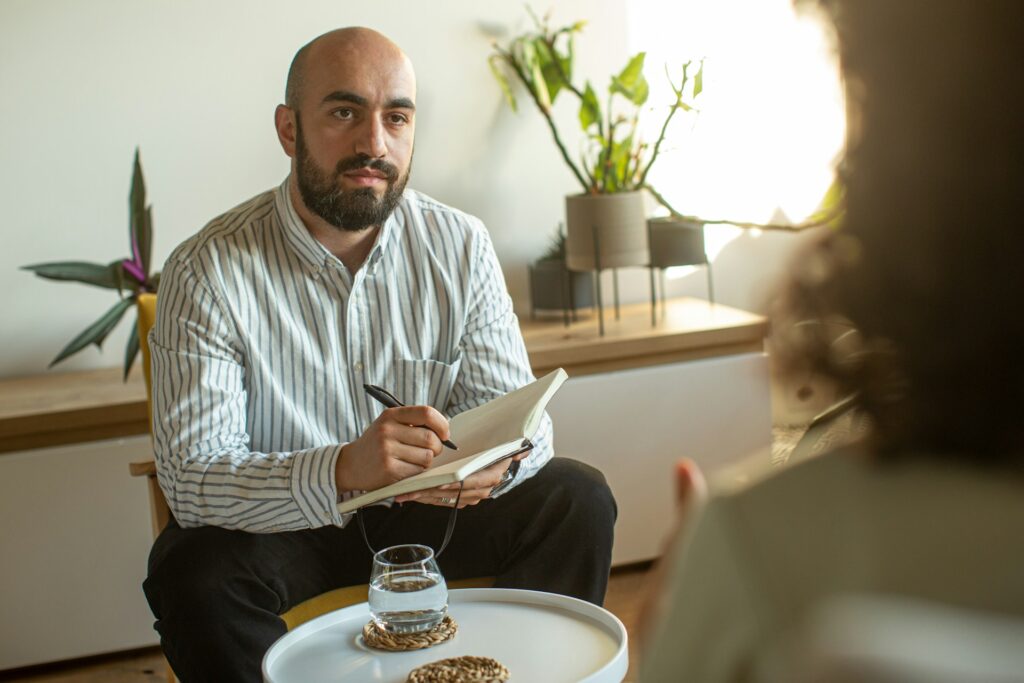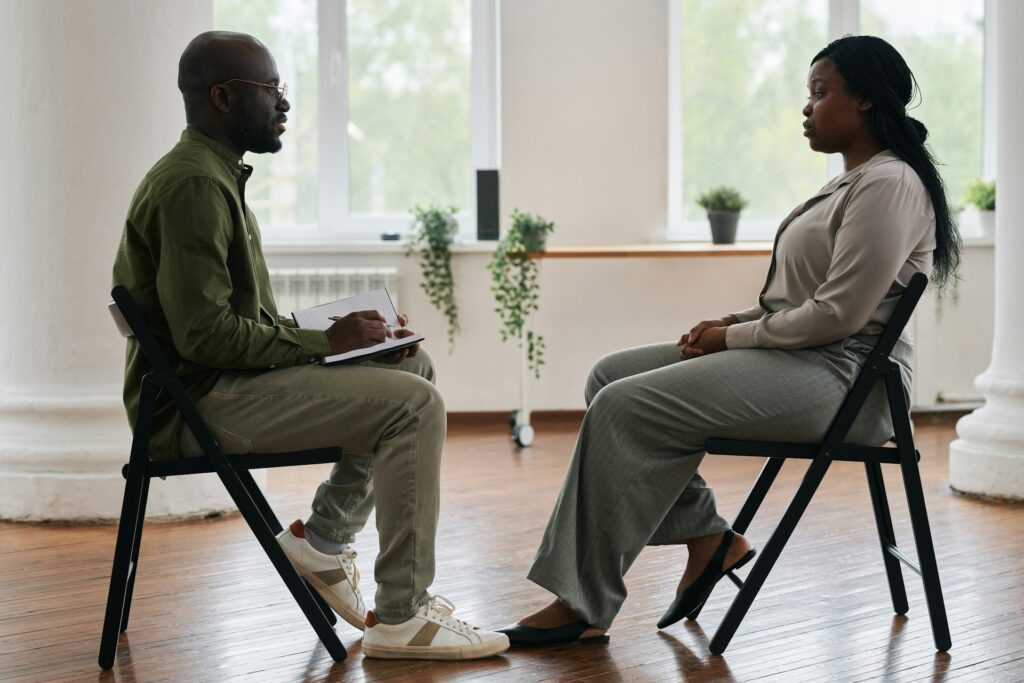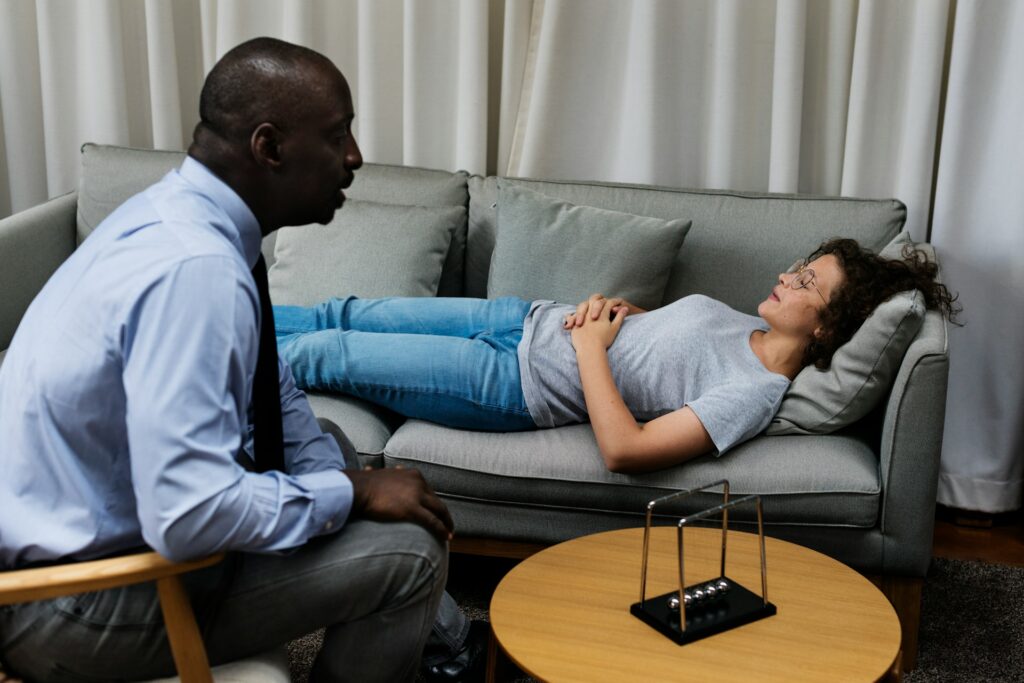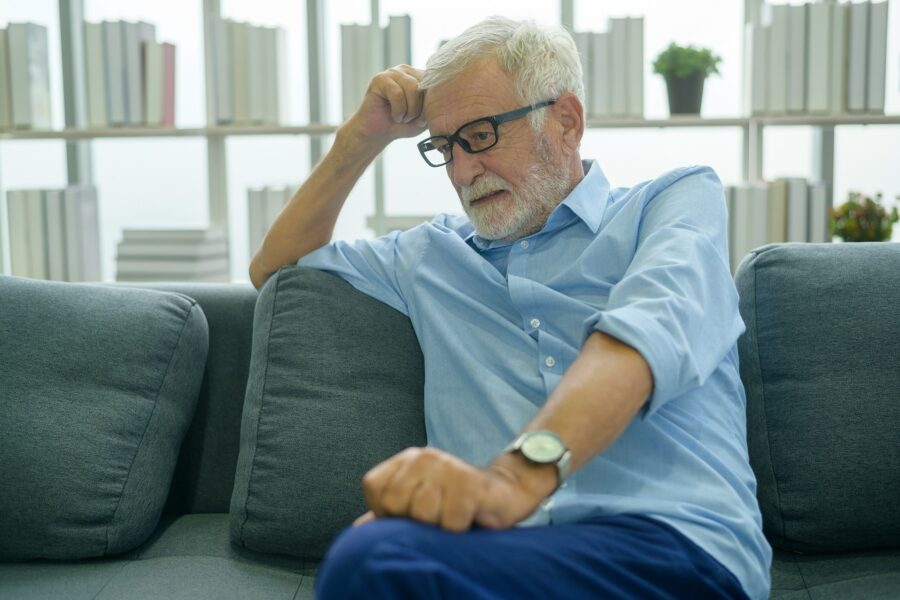Therapy isn’t just for fixing problems, and you don’t need to have experienced trauma or grief to benefit from it.

At its best, it gives you the space, tools, and insight to reconnect with who you are, and slowly build a life that actually feels good to live. You might think that offloading your thoughts and feelings to a perfect stranger can’t possibly make much of an impact on your life, but you’d be wrong. Here’s how developing a relationship with a licensed therapist or counsellor could help you be much happier in life.
1. It helps you understand what happiness even means to you.

Most people chase happiness based on what they’ve been told it should look like—success, romance, approval. However, therapy helps you strip all that back and figure out what genuinely lights you up. By exploring your values, your needs, and your emotional habits, therapy can help you realise your version of happiness might be quieter, simpler, or totally different from what you assumed. That clarity alone can be life-changing.
2. It teaches you how to manage your emotions instead of avoiding them.

Happiness isn’t about never feeling sad or anxious—it’s about knowing what to do when those feelings show up. Therapy gives you the emotional tools to navigate your internal world without getting overwhelmed by it. You learn to notice patterns, name what you’re feeling, and respond in healthier ways. That change reduces emotional chaos and brings in more peace—and with peace, happiness has more room to grow.
3. It helps you stop self-sabotaging the good stuff.

Sometimes happiness slips away because we unconsciously push it away. We doubt we deserve it. We wait for it to go wrong. We ruin it before it can disappoint us. Therapy helps untangle all of that. By exploring where your self-sabotage comes from—past experiences, unhealed wounds, or protective habits—you can stop repeating patterns that quietly keep joy at arm’s length.
4. It gives you a safe space to be fully honest.

Most of us wear masks in everyday life—toning down feelings, hiding shame, or pretending things are okay. Therapy gives you one of the only places where you don’t have to perform. That emotional honesty is incredibly freeing. When you’re not pretending, you’re able to meet your needs more clearly, face fears with less shame, and feel closer to the version of you that feels most real.
5. It helps you heal old wounds that still shape your present.

Unresolved pain from the past doesn’t just sit quietly in the background. Sadly, it seeps into how you love, trust, speak to yourself, and handle stress. Therapy helps you finally turn toward those experiences and process them fully. That kind of healing doesn’t erase the past, but it stops it from running the show. You move forward with more freedom, less emotional baggage, and a clearer path to the kind of joy you didn’t think was possible.
6. It makes your inner critic easier to live with.

Everyone has an inner voice that questions, critiques, and catastrophises. However, when it’s the loudest voice in the room, it makes happiness hard to access. Therapy helps you challenge that voice, soften it, and learn where it came from. As time goes on, your internal dialogue becomes more balanced. You stop bullying yourself out of progress, and with less noise and shame taking up space, confidence and contentment can actually grow.
7. It helps you stop numbing or avoiding.

Many people turn to scrolling, drinking, overworking, or people-pleasing when emotions feel too big. Therapy gently helps you notice those habits and understand what you’re trying to avoid. With awareness comes choice. You learn to sit with discomfort instead of escaping it, which slowly builds emotional strength. That creates a stronger, more grounded foundation for happiness to rest on.
8. It strengthens your boundaries without making you feel guilty.

Therapy teaches you that protecting your energy doesn’t make you selfish—it makes you stable. You learn how to say no, how to recognise when you’re overextending, and how to prioritise yourself without shame. When your boundaries are clear, your relationships improve and your daily stress drops. That opens up space for joy—not because you’re forcing it, but because you’re no longer constantly overwhelmed.
9. It improves how you connect with other people.

Good relationships are a huge part of long-term happiness. Therapy helps you understand your patterns in relationships—where you give too much, where you shut down, or where fear runs the show. As you grow in self-awareness, you start showing up more honestly and openly with other people. You attract healthier connections, repair broken dynamics, and feel more loved for who you actually are.
10. It helps you find meaning during hard times.

Happiness isn’t about avoiding pain—it’s about finding meaning, strength, or insight in it. Therapy helps you build that emotional resilience. It doesn’t rush you through struggle, but it helps you make sense of it. When you stop seeing pain as failure and start seeing it as something survivable, you carry yourself differently. That perspective change creates a deeper, more grounded sense of contentment, even during tough seasons.
11. It gives you permission to want more.

Many people hold back from reaching for happiness because they think it’s greedy, unrealistic, or too much to ask for. Therapy challenges that. It helps you explore what “more” looks like, and why you’re worthy of it. It’s not encouraging chasing perfection—it’s about recognising when you’ve settled for too little. When you start believing that joy is something you’re allowed to want, you’re more likely to create it.
12. It supports you through change without panic.

Even positive change can be scary. Therapy offers stability during those transitions—whether you’re ending a relationship, changing careers, or rethinking your identity. It helps you stay grounded when everything else feels uncertain. With that support, you’re less likely to run back to what was comfortable but unfulfilling. You’re more likely to move toward something that actually makes you happy, even if it takes time to get there.
13. It helps you come home to yourself.

Above all, therapy helps you feel more like you. The version of yourself that isn’t hiding, hustling, or hurting all the time. The version that knows who they are, what they want, and how to choose it. This isn’t the loud kind of happiness. It’s the quiet, steady kind that comes from emotional safety, self-awareness, and growth. And it’s one of the most powerful things therapy can give you.


